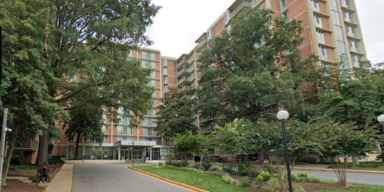
With schools closed and substantial changes to daily life ensuing because of the COVID-19 pandemic, individuals navigating custody and visitation disputes have found themselves in uncharted territory. These changes, combined with D.C. Superior Court’s suspension of many of its Family Court operations as a result of the pandemic, have led to uncertainty about the legal options available for those involved in family law matters.
Recently, Legal Aid intervened in one such situation. Francesca Martin,* a D.C. resident and mother of two, called Legal Aid for help when the father of her children, Lyle Patterson,* refused to return the kids to her after they visited him at his home outside of the District of Columbia.
Per the parties' most recent custody order, Mr. Patterson was supposed to have visitation for one week during the kids’ spring break in April. But when schools closed early due to COVID-19, spring break was moved up to March. The parties agreed that the kids would visit for one week in late March instead, and that Ms. Martin would drive the five hours to Mr. Patterson’s home to drop off and pick up the children from the visit. When Ms. Martin arrived to retrieve the kids at the end of the week, however, Mr. Patterson refused to return them. He told her that he planned to keep them until the end of the original break time, which was still several weeks away. When Ms. Martin began to argue with him, he threatened to physically harm her.
Ms. Martin called the police where Mr. Patterson lives, but they told her that they could not enforce another state’s custody order. Ms. Martin also called D.C. police, who told her they could only write a report to document the incident. To make matters worse, Ms. Martin learned from one of her children that Mr. Patterson had stopped giving them their prescribed medications, which they need to take daily.
Unsure where else to turn, Ms. Martin reached out to Legal Aid, seeking help to get her kids back. Legal Aid accepted her case, and the Domestic Violence/Family Law Unit sprang into action. Senior Staff Attorney Jamie Sparano filed an Emergency Motion for Contempt on behalf of Ms. Martin, arguing that Mr. Patterson should be ordered to return the kids immediately. A virtual emergency hearing was held the same day.
During the hearing, Legal Aid raised Ms. Martin’s concerns that she is the primary custodian of the children, that they had not visited with Mr. Patterson in over a year, and that Mr. Patterson was neglecting to fulfill their medical needs. Mr. Patterson maintained that he should not have to return the children until late April, the original end of spring break. Ultimately, the Court agreed with Ms. Martin that Mr. Patterson’s interpretation of the court order was unreasonable. The Court ordered Mr. Patterson to return the kids to D.C. over the coming weekend.
Ms. Martin’s kids have since been returned, and are safe and healthy at their home in the District. Her Legal Aid team is relieved, but remains vigilant. Ms. Martin is one of hundreds of clients who now find themselves and their families in unprecedented circumstances. Amidst this uncertainty, the Domestic Violence/Family Law Unit remains as committed as ever to advocating for the safety and stability of our clients and their families.
Get Help 24/7 from the National Sexual Violence Hotline at 1-800-656-4673.




